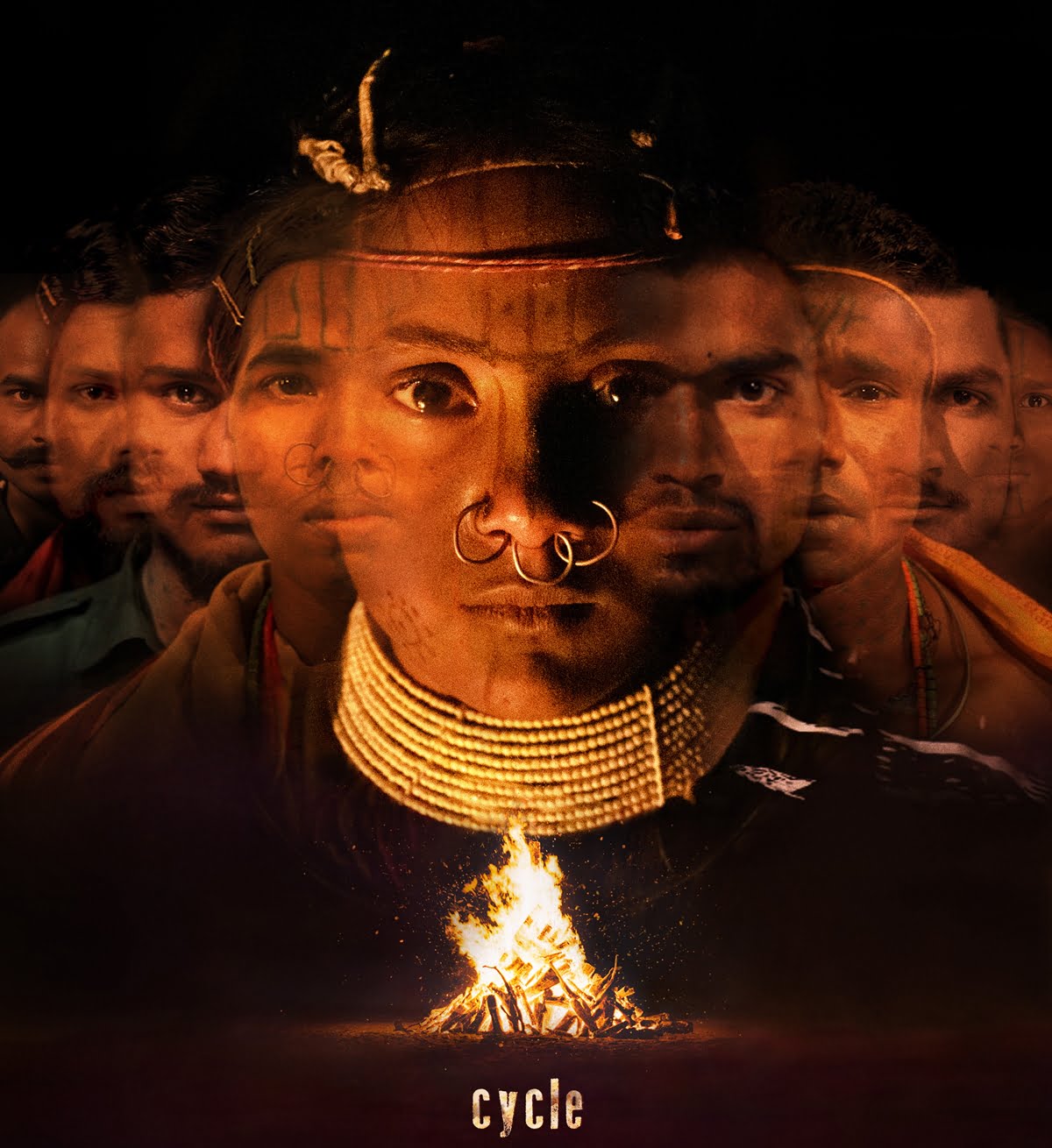If oppressor caste eyes need to view a tribal woman being devastatingly abused, her expressions of being raped shown for long on the screen; and only then have a sympathetic concern for her cause; then the fault lies in their gaze. If they need to see a tribal woman being completely dehumanised in order for them to revisit their humane values; then the flaw lies in their own capacity to be humane. On one side, Devashish Makhija’s short film Cycle endeavours to portray the brutal barbarity that has been hitherto inflicted on the tribal population by the state; on the other side, it attempts to do so by putting the burden of proof on the tribal population itself. So a tribal woman has to undergo multitudinous kinds of violence for her to be accepted as a victim, and for the elite gaze on the screen to then comprehend her rebellion.
The short film which premiered and won a special mention in the fiction category at the International Documentary and Short Film Festival of Kerala underlines a pertinent issue, that of state-sanctioned violence on tribal people and state-extended impunity towards those who abuse the marginalised in the forests, as well as the disturbing consequences of both.
The short film which premiered and won a special mention in the fiction category at the International Documentary and Short Film Festival of Kerala underlines a pertinent issue, that of state-sanctioned violence on tribal people and state-extended impunity towards those who abuse the marginalised in the forests, as well as the disturbing consequences of both. Cycle does show the grievances of the survivors. It show how even those who claim to care about the tribal people enforce their fabricated fence of self-proclaimed civilisation when staying near the tribals — like maintaining distance from tribal food.
Also read: Jai Bhim Film Review: Powerful Yet A ‘Voice For The Voiceless’ Narrative
At one point, it also reinstates how the privileged maintain the chasm between the elites and the tribals where the privileged woman documenting tribal experiences is shown with confidence and is instructing the tribals who are meekly following her. The elite woman states that she has not joined the tribal movement in a half-light hearted and half-patronising manner, but one salient aspect which needs to be discussed here is that she has the option to choose whether to join or not. With their villages being burned; the tribal women did not have that choice. This scene strikes us for the ones making documentaries do maintain an emotional and social distance from the fights they are claiming to represent.
The tribal woman is asked to sing for free in the forest, without any remuneration, where the listener believes they are doing the tribals a favour by listening to them and not the other way round. The privileged would, however, never ask the elite to perform for free in their so-called civilisation. This devaluing of tribal art forms needs to be shunned. The song the tribal woman sings has lyrics such as, “I want to feel your touch untamed, Clasp my hand so we don’t part” which show her desires except the movie and the society do not extend the space for her to explore them.
The conversations between the tribal women and the privileged women again have a problematic portrayal of the tribals where the tribal woman repeats the questions before gauging and answering them. The movie shows the tribals as diffident, unintelligent, indecisive or violent but not as intelligent humans. Contrarily, the elite woman is shown as sorted and refined.
The tribals are being looked at, from the camera of the state-appointed personnel as the state extends agonising attacks on them, and then through the elite woman’s camera, who is studying tribals and constantly patronises them by maintaining a distance even while being close to them. Through both the cameras, it is the tribals who are been watched as “someone else” and neither of the lenses focuses on the perpetrators who otherise them. Distance is not always physical, differences need not always be brutal. They can be amicably patronising as well. While the state and so-called mainstream media have always looked at tribals through these two lenses and that; the movie does deliberate upon; the movie also does not challenge let alone change the status quo by shifting its gaze or questioning the ones holding or even needing this gaze.
The intent of the short film is the need of the hour, for more short films need to be made highlighting these concerns, but the impact of the gruesome violence and the gory abuse makes one question whether the elite viewer has an iota of self-reflection for them to get convinced of the abuse and then to commence caring. To show violence, one can show either the victim or the perpetrator on the screen. However, to question the violence, and to criminalise the criminals in the public consciousness; one has to show and analyse the perpetrators — something which Cycle has also chosen not to do vociferously.
Also read: Laying Claim On Forms Of Narration: The Adivasis Can Speak And Must Speak
While when the tribal woman is raped, her face is shown intimately and the camerawork is borderline violent; when the pregnant tribal woman retaliates and hits her violator; his expressions of physical agony are not shown clearly. The climax shows the tribal woman as perplexed between her morality and assertion and leaves the viewer confused; for an act of self-defence cannot be held tantamount to that of initial active oppression. Phoolan Devi, another marginalised woman has also explicated the same in her imperative and thought-provoking autobiography.

Cycle, thus, brings into the context an aspect of violence that needs to be discussed and curbed, but in doing so, Cycle in fact, at times violates the ones it is attempting to extend dignity to. Thereby, it makes us realise that dignity extended depends on the whims of those extending them, and dignity and self-esteem asserted by the tribals is what is salient. However, the short film puts the burden of the fight on the tribals, instead of asking the state to stop the violence. To show the tribals as voiceless victims and then as indecisive rebels and thereby only tying their identity in correspondence to the violent state; the short film does not focus on the individual agency of the tribal community and burdens them to fight a fight that was not initiated by them in the first place.
For a society to expect the marginalised to show more strength than the oppressive perpetrators is profoundly wrong. For it to burden teenaged tribal girls to show bravery when in the mouth of oppression and then glorify them for the same; is inhumane, for they deserve a gleeful, safe childhood. Cycle asks the correct questions; it should have only answered them better by holding the oppressors answerable and accountable.
For a society to expect the marginalised to show more strength than the oppressive perpetrators is profoundly wrong. For it to burden teenaged tribal girls to show bravery when in the mouth of oppression and then glorify them for the same; is inhumane, for they deserve a gleeful, safe childhood. Cycle asks the correct questions; it should have only answered them better by holding the oppressors answerable and accountable.
Featured image source: IMDB
About the author(s)
Ankita Apurva was born with a pen and a sickle.





